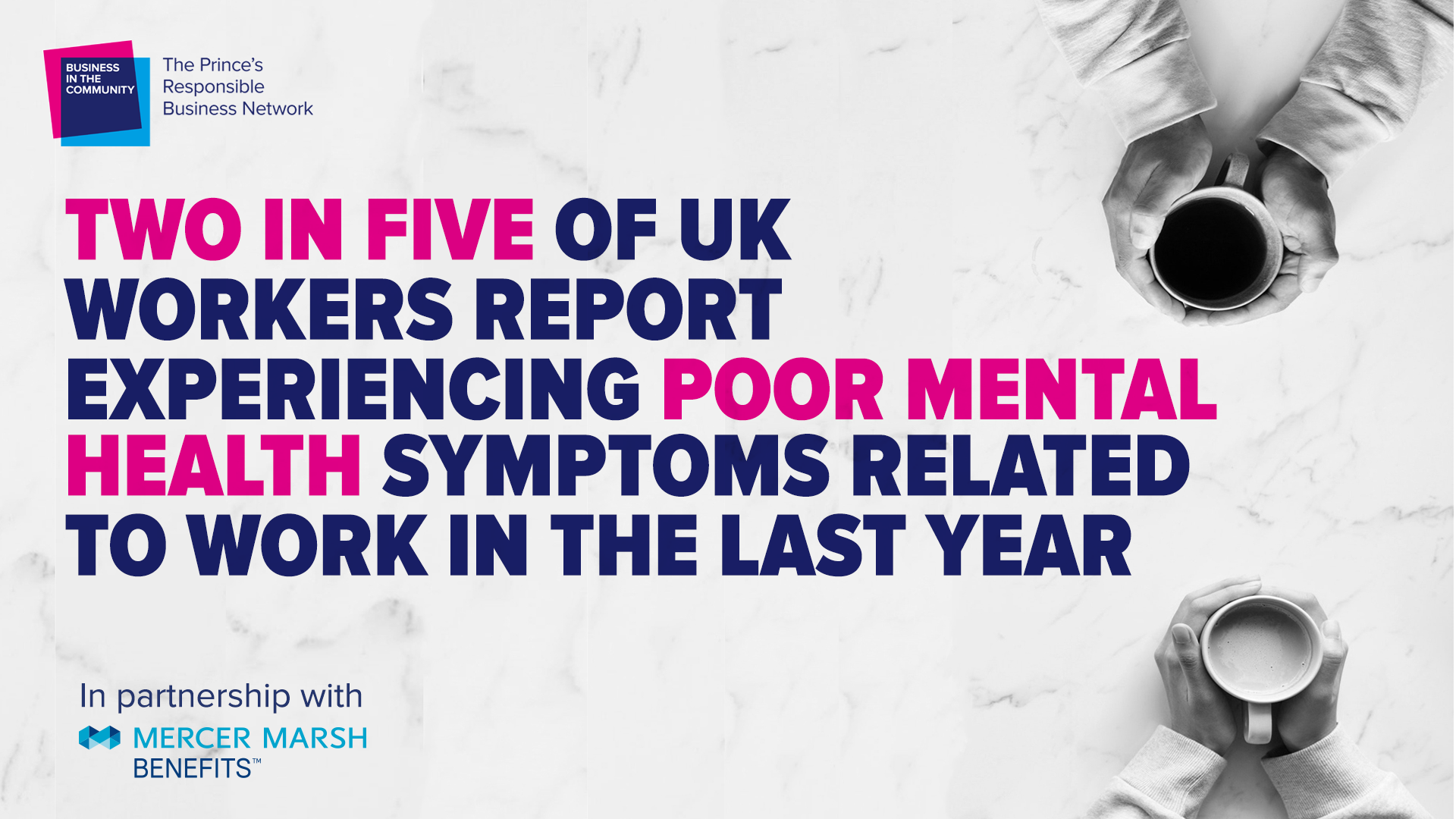
Today, Business in the Community (BITC) and Mercer Marsh Benefits have released a new report, ‘Time to Take Ownership’. Together with eight other national partners, the Society of Occupational Medicine (SOM) has collaborated on the recommendations for businesses detailed in the report.
This report shows that many employers are not taking ownership of their adverse impact on the mental health of their employees, as well as how they can provide good work and leadership that enhances mental health.
Its findings include:
- Two in five (39%) of UK workers report experiencing poor mental health symptoms related to work in the last year
- More than six in ten (62%) managers said that they have had to put organisational interests above staff wellbeing
- 52% of those who experience mental health problems related to work say this is due to pressure such as too many priorities or targets
The report also includes case studies from a diverse range of businesses showing how they have taken steps to foster a culture that not only protects but enhance mental health for their diverse workforces.
Louise Aston, Wellbeing Director, Business in the Community, said: “While mental health awareness has risen significantly in recent years, our research shows that too many employers are tinkering at the edges of change rather than making the fundamental differences that are really needed to improve their employees’ mental health.
“People who come to work don’t expect to be physically injured and they should also not expect to be psychologically harmed. A profound cultural shift is paramount so that work itself doesn’t cause poor mental health but instead should enhance it. Those who aspire to be the best employers to attract top talent must remove the barriers to improving wellbeing, retention and productivity. Businesses are at their best when people are at their best. Let’s ensure people can bring their whole selves to work and thrive while they’re there.”
The SOM welcomes this report’s focus on providing effective support to employers and employees around workplace mental health. SOM is the largest nationally recognised professional organisation for Occupational Health (OH) professionals.
OH professionals are uniquely trained to provide a tailored approach (as this report recommends) to respond and support employees’ needs. OH can help the line manager/employer understand what adjustments are required to support employee’s mental health.
This report’s results show that employers urgently need a greater understanding of what works and what they should be doing. It is concerning to see that only 29% of employees know about OH, with much lower awareness amongst smaller businesses.
The report makes important recommendations to support both line managers and employees. For example, a key step is to support adjustments, flexible working, help with workload, or phased or gradual return to work.
The report’s spotlight on building a better understanding by employers of mental health issues aligns with the Government, which recently launched a consultation on improving health at work and reducing ill-health related job losses. The consultation looks at Statutory Sick Pay changes, extending the right to all employees to request workplace modifications to manage their health, and the importance of quality OH services to respond to this. The consultation recognises the lack of access to OH services (which are currently provided only to around half of all employees) and aims to build capacity and rapid accessibility.
It’s great to see that more people are coming forward to talk about their problems in the workplace but the survey results show that too many vulnerable employees are still being ignored, with variations across different sized businesses and sectors. At SOM we have aimed to demonstrate best practice – making a Time to Change pledge to end mental health discrimination and committing to the Mayor of London’s healthier workplace scheme. This report will help to build momentum to achieve further positive change.
You can read the full report on the BITC website.

